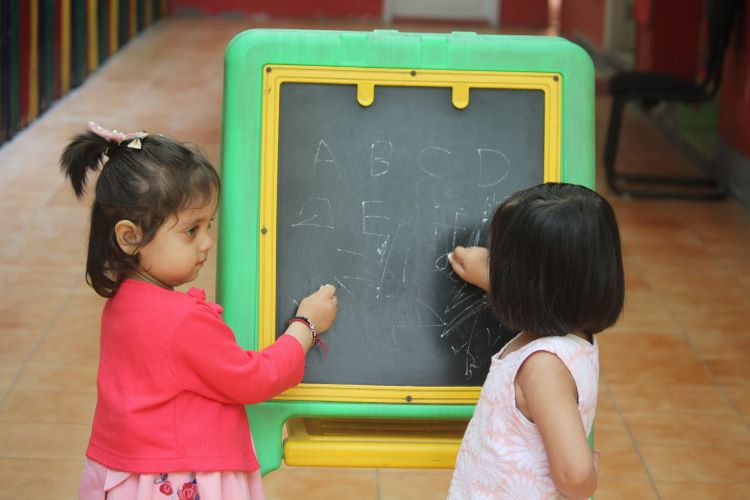What is the Need to Develop Digital Literacy? Know the Meaning, Skills and Ways to Improve It


Digital literacy is a big topic these days, and we’ve previously written about how important it is for today’s children, as well as what teachers need to know about assisting them in efficiently using technology to boost modern communication.
However, while the need for digital literacy is obvious, actually teaching and utilising technology in school contexts can be a challenge. Most students are already familiar with a variety of digital tools, but that doesn’t guarantee they understand how to apply such tools to learning.
Also Read: Basic Mobile App Development Projects for Kids: Learn What is Needed for Mobile Applications


What is the Need to Develop Digital Literacy?
Helping students become discerning consumers of information is an important element of teaching digital literacy. Begin by encouraging kids to ask questions, then go straight to the source and double-check for objectivity.
Students today are already active on social media, and in many situations, they may be better at it than their teachers. As a result, the emphasis should not be on educating students on the shallow depths of social media, but rather on demonstrating how it may be used in a classroom setting.
Learning courses for your kids! Get a free trial here
Digital or Internet Literacy Meaning and Definition
What is the definition of digital literacy? Simply put, it’s the abilities that allow you to properly use communication technologies—the abilities to find the information or content you need, analyse it, interact effectively, and keep yourself safe from online threats. This is a new and important skill for students, as well as everyone who spends time online.
Becoming a Digital Literate Person
Ways to Improve Digital Literacy
Although the Internet hasn’t made plagiarism any easier, it has altered the manner it occurs, and students may now be plagiarising without even realising it.
Understanding how the internet and system work, however, is not the same as learning how to code or create a website. You must comprehend the methods and decisions by which content is created on the internet and how that content reaches you to navigate the online world.
The text makes it difficult to convey tone, modality and inflexion, and recipients may misunderstand what you’re saying. Language or cultural differences may also have an impact on how your words are received, so keep your intended audience in mind and tailor your message accordingly.
Also Read: How Can a Kid Make a Simple App? Check Out Fun Mobile App Development for Kids
Primary Skills
Digital interactions may appear to be private, but they aren’t always. You never know who might see what you say or what photographs you upload, so be sure you’re comfortable with your information reaching unexpected receivers.
Based on your prior history, algorithms ensure that you’re more likely to view the same type of information or content from perspectives similar to yours. To gain a variety of viewpoints, look for sources offering a variety of perspectives to ensure you’re receiving the full picture.
Keeping it Private
The amount of data that firms acquire about you online is growing by the day, and it may be utilised in both beneficial and unethical ways. Cookies are used by websites to track your actions and target advertisements. Your phone’s apps may request access to your contacts or other data. You may be asked to provide information while signing up for websites or services.
Pay close attention to what data is being requested and who is requesting it. Determine how much information is necessary for the service you require. In sign-up forms, you may wish to avoid providing optional information.
Learning courses for your kids! Get a free trial here
Conclusion
When it comes to technology, we all have a comfort zone, but if we want students to become inventive and well-rounded users, we need to push them out of their comfort zone as often as possible. Of course, each pupil will interpret this differently.
Hopefully, the above article gave you insights into the skills that one needs in this internet world. Still having doubts then, hop on to our website now.
Also Read: Can a Kid Create an App? Acknowledge the Mobile App Development Course for Kids!
Recent Posts
What are the Advantages of Online Teaching at The Real School?
In the article -"What are the Advantages of Online Teaching at The Real School?" we…
What is the Full Form of School?: Unveiling the Acronym
The term "school" carries profound significance in the realm of education, representing more than just…
What is Math Full Form?: Cracking the Code
Mathematics, often referred to as "Math," is a subject that elicits various reactions from students…
What is Full Form of Homework?: Decoding Academics
Homework, an integral part of the academic journey, often raises questions about its purpose and…
What is Full Form of Teacher?: Demystifying Education
In the intricate tapestry of education, teachers stand as the pillars shaping the intellectual and…
What is Real Education?: Discovering Its Essence and Impact
The concept of real education is evolving, transcending traditional views that equate it solely with…

